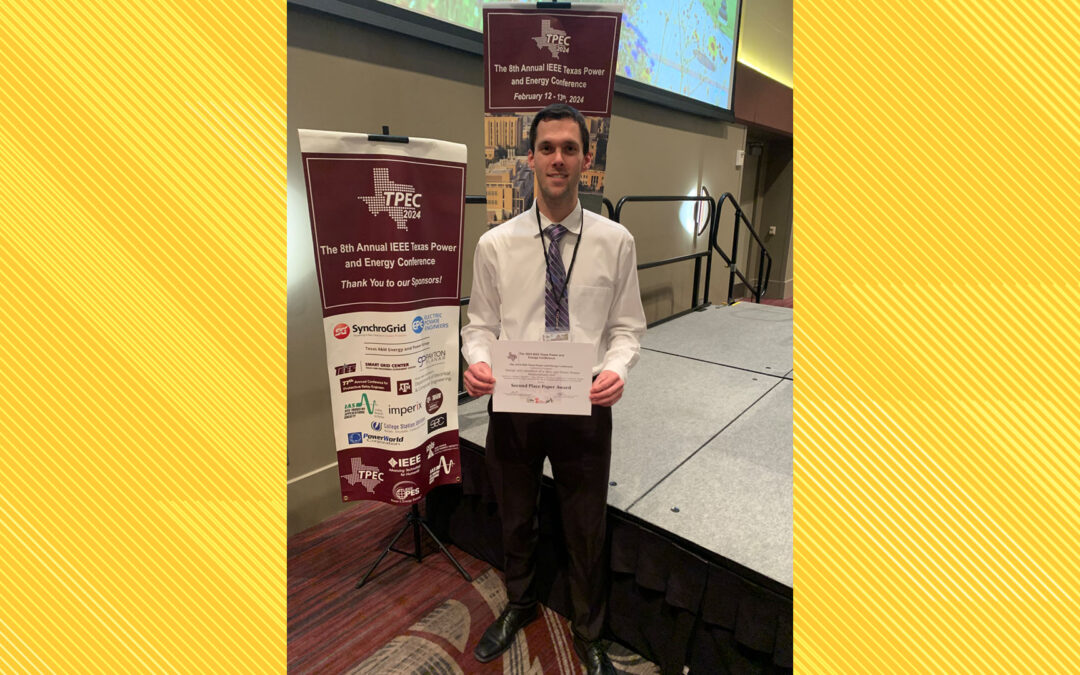With so much of modern life dependent on the power grid, keeping an eye on its status is essential. Devices known as phasor measurement units, or PMUs, monitor the grid’s voltage and electrical current for anomalies.
PMUs are deployed at a variety of locations across the grid to quickly pinpoint malfunctions. By narrowing down where a grid problem happens, its operator can respond faster to get electricity flowing to customers once again.
Traditional PMUs require certain installation conditions that limit where they can be placed and increase costs. Power requirements and direct contact with powerlines are needed.
Zachary Lythgoe, a computer engineering doctoral candidate in the Ira A. Fulton Schools of Engineering at Arizona State University, says these restrictions prevent PMUs from being placed in sparsely populated areas far from power plants. Lythgoe developed a solution to increase the ubiquity of PMUs: a design that doesn’t require connection to power lines and can use minimal amounts of electricity to operate, sustaining itself with power generated from a single solar panel.
He presented his work at the 2024 Institute of Electrical and Electronics Engineers Texas Power and Energy Conference, where he received a second place best paper award.
“This recognition has been rewarding after a long journey to get this work published,” Lythgoe says. “I am grateful for the opportunity to share our work with the power research community.”
Lythgoe’s doctoral advisors, Professor David Allee and Associate Professor Anamitra Pal, both electrical engineering faculty members in the School of Electrical, Computer and Energy Engineering, part of the Fulton Schools, praised the award as well-deserved.
“Zach is a hardworking, dedicated and sincere doctoral candidate,” Pal says. “This award is an apt recognition of his efforts to continuously improve upon the state-of-the-art technology.”
Allee notes Lythgoe’s work to improve power grid technology for U.S. national defense.
“Zachary Lythgoe is a talented doctoral candidate who has made significant contributions to power monitoring working with the U.S. DEVCOM Army Research Laboratory,” Allee says.
Lythgoe and his research group have developed several prototypes of the PMU design, with more in the works. As the research progresses, Lythgoe’s goal is for his design to be used in power grids around the world.
